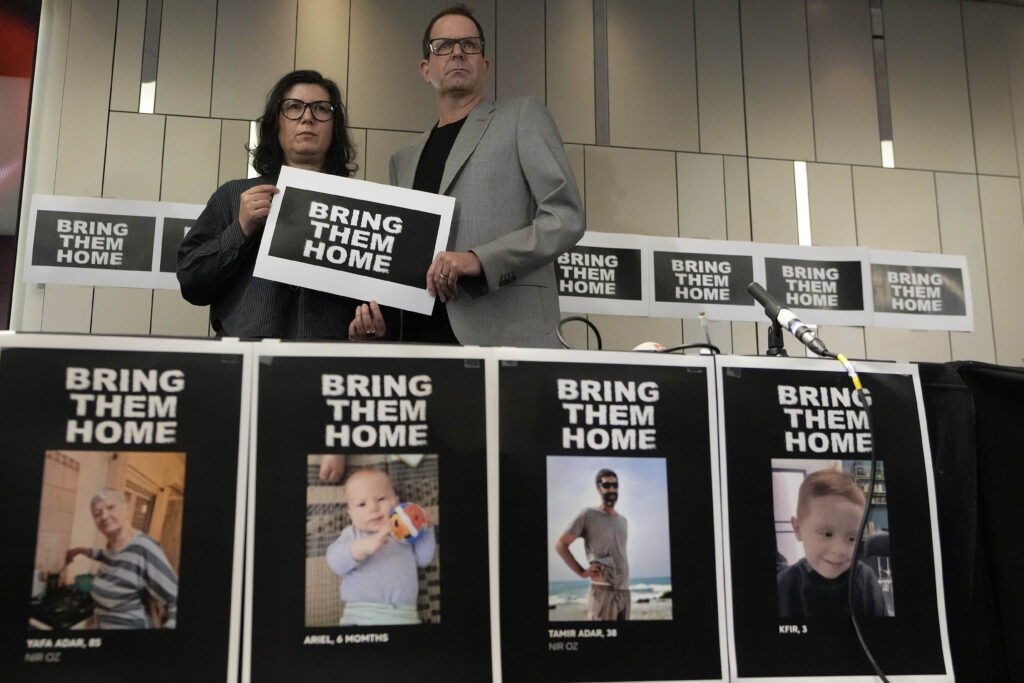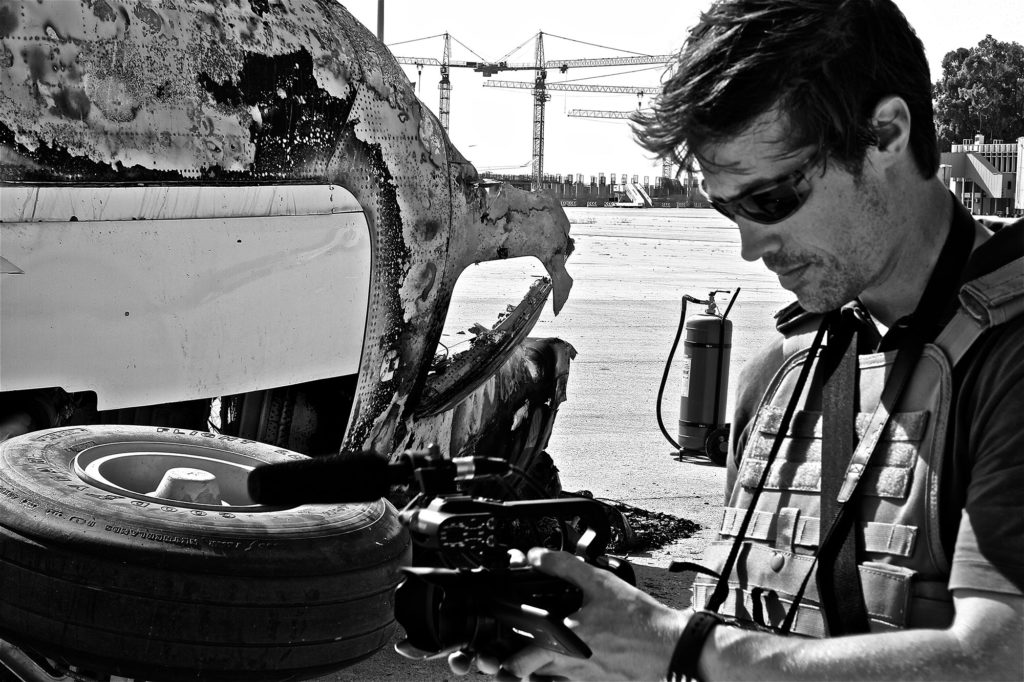How do you begin to measure the depths of depravity in the attack by Hamas militants in southern Israel and the enormity of the military response and collective punishment underway in Gaza?
If the human cost is measured in the loss of innocent civilians, then sadly the toll is mounting. At nightfall in Gaza, the thunderous pounding of bombardment punctuated the evening call to prayer echoing out from minarets. A ground invasion by the Israeli Defense Forces was reportedly imminent. It feels like the death spiral of the Israeli-Palestinian conflict has reached an historic and uncertain turning point that will reshape the Middle East.
More than 1,200 Israeli civilians were murdered – hunted down and shot at a music festival in the desert, soldiers captured and beheaded, an infant riddled with bullets and a level of barbarity that is unfathomable at the hands of Hamas, an elected political movement that governs Gaza but which the U.S. and most Western nations deem a terrorist organization. An estimated 150 innocent civilians, including the elderly and children, were pulled off the streets by Hamas’ military wing and ripped away from their families and taken to Gaza and held hostage.
In the six days of war that followed Hamas’ overrunning of the border fence and its attack in Israel by land, air and sea, the Israeli Defense Forces have pummeled Gaza. Initial estimates by Palestinian authorities are that more than 1,500 Palestinian civilians have been killed in indiscriminate air strikes and more than 300,000 people have been displaced in Gaza amid a complete blockade of the thin, 140-square-mile patch of earth that holds 2 million people.
In this moment when the grim math of war feels incalculable, our hearts go out to everyone who is suffering or who has lost a loved one. The most urgent focus now turns on the hostages who were taken by Hamas, an Arabic acronym for the Islamic Resistance Movement which won in legislative elections in 2006 and in 2007 seized governing power in Gaza. Hamas has put out statements threatening to publicly execute the hostages if Israel continues its attacks without warning.
I have covered the Middle East for more than three decades and interviewed countless presidents, monarchs, public intellectuals and diplomats from all sides and every manner of experts on terrorism, military strategy and human rights. But through those years, one person who needs to be heard right now is Diane Foley.
Diane is the mother of James Foley, a freelance journalist who was captured in Syria in 2012 and publicly executed in 2014 by ISIS, a terrorist organization that rivals Hamas for its barbarity and cruelty. Jim was my friend and colleague and worked with me at GlobalPost and later at GroundTruth in our earliest days just before he was captured. He was detained and tortured by ISIS for two years. And in the nearly ten years since he was executed, Diane has advocated tirelessly on behalf of hostages worldwide, working through three U.S. presidencies to put the fate of Americans held captive overseas high up on the national priority list.
This week, I had lunch with Diane Foley at the cafe at the Boston Public Library, a meeting which we had planned before the attacks in Israel took place. We were hoping to just catch up and recognize Jim’s birthday which is celebrated tomorrow and remembered every year with the Freedom Foley Run to benefit the James W. Foley Legacy Foundation which Diane leads from a small town in New Hampshire where she and her husband, John, raised their five children. Diane is a nurse, a mom and a force of nature.

Asked about the events unfolding in Israel and Gaza and particularly the news of an estimated 150 people, including 25 Americans, taken hostage by Hamas, Diane said, “It brings it all back, that same awful hatred that comes through and particularly the targeting of innocents, taken as political pawns.”
“I feel for these families. It just breaks my heart to think of what they are going through,” said Diane.
Diane was on her way to Amtrak to travel to New York City for a previously scheduled meeting with ACOS, A Culture of Safety, the advocacy organization for freelance journalists that GroundTruth and dozens of others news organizations came together to form in response to Jim’s murder to promote safety for reporters in the field. And she was being called in to MSNBC and Fox News and other news outlets to comment on the hostage crisis at the heart of the moment in Israel’s war on Hamas.
Not since the age of presidents Jimmy Carter and Ronald Reagan, when Iran held American hostages, has the issue been so at the center of American policy.
Increasingly, Diane said, the hostage takers are not only Islamist revolutionary movements like the one in Tehran in 1979 and shadowy terrorist organizations such as ISIS, which killed her son, but foreign governments. In this regard, Hamas, as an elected party governing in Gaza, falls in something of a gray zone with both a political arm and a military wing that has claimed responsibility for terror attacks on Israeli civilians.
There were only four countries that held Americans wrongfully from 2001 to 2005, while now at least 19 countries hold more than 50 American hostages, including Russia, China, Iran, Venezuela and Syria, according to research by the Foley Foundation. The 25 Americans who were taken hostage by Hamas on October 7th, would bring the total to more than 75.
Diane’s work and the work of the foundation has brought awareness to America’s vulnerabilities to hostage taking and its strategic failings in past efforts to get them released. She has pulled the issue from the shadows into the light. It was through her pressure that the White House under President Barack Obama created a new position of hostage coordinator to work with families to draw on all of the intelligence organizations such as the FBI, which has traditionally taken the lead on hostage cases, as well as the National Security Council and the CIA.

President Biden’s national security advisor Jake Sullivan said that a rise in hostage taking and those civilians wrongfully detained by state governments has prompted new strategies in negotiating for their release and has become more of a priority than he would have imagined during his tenure. Sullivan credits Diane with putting the plight of hostages on the map in a positive way.
In an interview with the New York Times at the time of the release of WNBA star Brittney Griner from a Russian jail cell, Sullivan said, “Diane Foley has turned tragedy into purpose and relentless advocacy, and that has made a real difference.”
Diane not only has raised awareness about hostages, but also about journalists, particularly freelancers, who risk their lives to go work in countries where kidnapping and wrongful detention are tangible threats. Diane has always understood, and never questioned, Jim’s unwavering commitment to frontline journalism that put him on the frontline in Syria. She said it was “a calling,” for Jim, a form of service that was at the center of his life. At GroundTruth, Jim’s murder occurred, as fate would have it, on the same day our organization was officially recognized as a non-profit.
Diane and I talked about how concerned we are about those journalists on the ground in Gaza who are doing their best to document the dramatic events still unfolding. Strangely, out of the crisis, we both felt a new resolve for our separate and shared missions, and the ways in which we can best support journalists on the ground doing work that truly matters and that intends to shine a light into darkness and to be all about making the world a better place.
I asked Diane what keeps her going and she offered the same words I have heard her say every time she was asked this question since Jim’s capture.
“My faith,” she said.
And after a pause, Diane added, “My faith and a lot of good people” highlighting all who have worked together to make the release of hostages a priority for the American government.
“The good has to triumph over the evil of all this.”

































